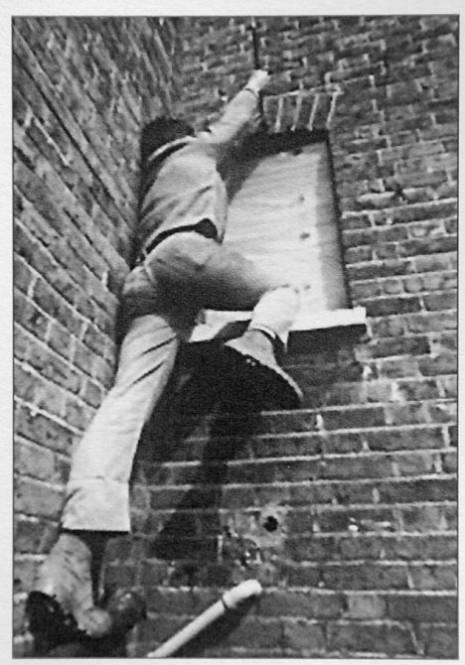
With all of the iPad hype going on this week, I was surprised that so few pundits were saying what I felt was glaringly obvious: No way in hell is the iPad going to save the ailing magazine and newspaper industry. Did anyone really believe that for a single second anyway? Gimme a break! I already get more than enough distractions for free—no, really guys, my infotainment cup has been runneth overing for a very, very long time now—that there is no way, not a chance—none—that I’m going to subscribe to your magazine or newspaper now that a device I never asked for in the first place has been caused to exist by Steve Jobs. I don’t care what your new iThingee is or how great your marketing people are telling me it’s going to be. If you think what you’ve got is so unique and must-read that I should pay for it, I’ve got news for you, it’s not. It’s a very big Internet out there and as long as 99.99999 percent of it is free, your subscription fee is a self-imposed death sentence, and will not even constitute a revenue trickle let alone a stream.
Witness the recent paywall experiment at New York Newsday. It did not go very well. During the first three months of the paywall, exactly 35 people opted to pay for what they had been previously getting for free. Raise your hands, readers in Long Island, NY, how many of you who plan to buy an iPad also have plans to tap the digital ass of New York Newsday for a monthly fee?
About what I thought: None of you.
Every morning I scan dozens of newspapers around the world for my job at the Los Angeles Times and believe me when I tell you that much of it looks like all the rest of it. Take a gander at the blog rolls at Huffington Post and the Drudge Report. They differ but only slightly. Together they list almost all of the top-flight, “world class” English entrants in the “must read” daily category of news producers and aggregators. (And no, I don’t seriously include World Net Daily or News Max amongst them just because Matt Drudge does, I’m speaking generally here).
My point is that there are only really a few dozen news organizations worldwide—a hundred tops—that have any real import. Only the ones at the top of the Christmas tree of each day’s information cascade really matter. Everything else follows these sources. Of course there are rogue newsmakers like Perez Hilton who can break a story, but the likes of him are few and far between. There are but a handful of credible, well-run daily news organizations worldwide and beyond them are professional speciality magazines and more or less second-rate information sources. By this I mean the copycat news organizations of the Middle East, Asia and India that largely just regurgitate the Western news organizations output a day later and also the blogs that parse the very same information, dice it and slice it, opine about it and then point back to the original source. It can really start to look quite same-y the more of them you read. In the vast stew pot of information out there, should one chunk drop out behind a paywall, the flavor will remain exactly the same overall, whether or not that chunk is the New York Newsday, US Weekly or Wired magazine.
The $150,000 full page print ad has no equivalent in the online world and THIS is, very simply, the problem defined. Randy Michaels of Tribune hit the nail squarely on the head when he said that the magazine and newspaper industries had traded dollars for dimes in the transition from print to digital. Historically we know how it happened (the infant online ad industry sold very cheaply—they had to starting out—and got stuck with the fee structure), but why in 2010 when everyone has got their face in front of their computer all day long, is online advertising still only worth a fraction of the print equivalent? The static advertisement when displayed in the medium of yesterday that only over 50s read anymore is worth more than the dynamic electronic version? Why is this still the case?
If you ask me, this is what the industry needs top be concentrating on: getting their advertisers to foot the bill, not the public. The public has already spoken on this matter and they are not going to budge on the issue of paying for content on the Internet. That inconvenient yet incontrovertible fact is by now well-established, so what methods remain to monetize news content? If a media cartel formed of News Corp, Time-Warner, the New York Times, Tribune, Gannett and other of the major newspaper players (and indeed many of the online resources linked off the Huffington Post and Drudge Report blog rolls) with the goal of standing together to raise the prices of their online advertising to actually reflect the fact that, as I say, but a few dozen corporations are in the main responsible for the creation of 90% of all news, this might have an astounding effect.
We can say conclusively that the public will not foot the bill, so what is the alternative? I just told you. The worldclass news gathering organizations out there are performing tasks which are of great value to mankind and between them. they have the world’s attention. Should they all stand together and institute a form of collective bargaining with the very same vendors who pay them $150k for print ads and demand the same for access to their online audience—which constitutes a far more valuable aggregation of attention than their geriatric print readership—the industry could survive and even thrive. The subscription/paywall route is one of sure—and swift—extinction.
You can’t run a daily newspaper on 35 paid subscribers. No matter what shiny happy iPad apps the digital strategists are coming up with, no one subscribes to shit anymore under the age of 50. The newspaper media needs to get hip to this fast and not let the supposed iPad revenue model become a distraction.
Posted by Richard Metzger
|
04.04.2010
08:39 pm
|












